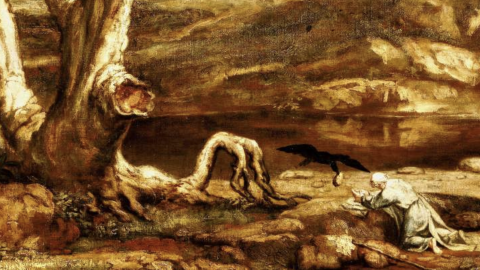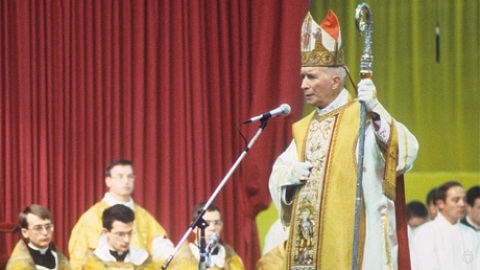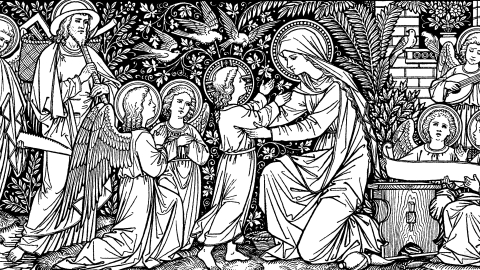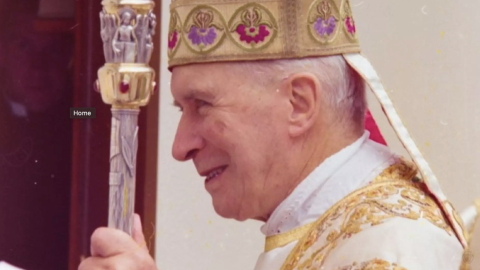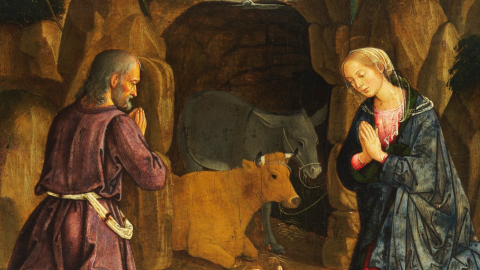What will be the Synod's upshot?

This morning, DICI #323 was published, and from this edition we offer below the editorial of Fr. Lorans and an article about the consequences of the Synod on the Family, which will end on Sunday.
Babel
The second Synod on the Family will end this Sunday, October 25, and all observers are wondering what might come of it…. A commission of experts who will study the question of divorced and civilly remarried Catholics? A Post-Synodal Apostolic Exhortation by Pope Francis? A magisterial document on marriage and the family? After more than two weeks of work, nobody knows. Yet the general impression is of great doctrinal confusion and profound divisions between the Synod Fathers.
Of course, they will talk about “synodal polyphony” or a “collegial symphony” in order to hide the genuine cacophony. And to mask the real risk of a de facto schism, they will say that they have arrived at a “differentiated consensus”, to use the foggy expression of the famous Kasper. Then the experts will meet to show that everybody, once again, is still seeking….
But behind all this rhetoric and posturing, a dissolving collegiality will allow each episcopal conference to do in practice whatever it wants: what remains a doctrinal error for some will become a pastoral truth for others. Sin for Cardinal Caffarra in Bologna, mercy for Cardinal Marx in Munich!
Aggiornamento, openness to modernity and the cult of man…. Ever since they started listening to the world, they have no longer agreed about anything in the Church. To this, Jesus responds: “Blessed are those who hear the word of God and keep it!” (Luke 11:28).
Fr. Alain Lorans
What will be the upshot of the Synod on the Family?
What will be the upshot of the second Synod on the Family? This is the question that all the Vaticanists are asking on the eve of its closing, October 25, 2015. Already on October 16th, Sebastian Maillard admitted in La Croix,
After an abundance of interventions in general meetings and informal exchanges in working groups, the synodal fathers are wondering if they will be ready to vote on a concrete document in one week. ‘Many feel it is prudent to consider the final text as a mere draft to be placed at the disposal of the pope, from whom is expected a later exhortation or a magisterial document on the family,’ stated an insider on the discussions."
The problems considered doctrinal by some fathers
lead to the suggestion of establishing a committee of experts on this subject. There is all the more reason to do so since the synodal fathers feel insufficiently equipped theologically to answer correctly."
On the same day, news agency Apic stated,
After more than 10 days of work from the bishops at the Synod on the Family, it must be noted that it will be difficult if not impossible to come away from this second assembly with a clear position from the Catholic Church on a number of challenges related to family pastoral care.
(…)
The synodal fathers may leave the assembly requesting a magisterial document on the doctrine of marriage and the family, but also the establishment of a committee of experts including theologians, canon lawyers, and Church historians, charged with studying the most delicate issues, especially the question of access to Communion for the divorced and remarried."
The most serious doubts bear upon the final document itself. Apic recalls:
Usually the modifications of the circuli minore [linguistic groups—Ed.], approved by the absolute majority, are submitted to a committee that drafts the final document, the Relatio finalis, which must itself be chosen by a two-thirds majority of the participants. Last year’s final document, at the extraordinary meeting of October 2014, was published while they were at it. But this year, the Sovereign Pontiff could decide not to publish the Relatio finalis. According to Fr. Federico Lombardi, director of the Holy See press office, ‘the Relatio finalis will be presented to the general assembly the morning of October 24th (…) and in the afternoon will be submitted for vote to the assembly.’ It will then be handed on to ‘the Holy Father who is the one to decide' what will happen with the document. The Relatio ‘has therefore not disappeared,’ Fr. Lombardi insisted, ‘but we do not know today exactly what the Pope will do with it,’ whether or no it will be published, or what will be the delays and the parameters of an eventual publication.’ On October 8, Filipino cardinal Luis Antonio Tagle had raised the possibility that there could be no post-synodal Apostolic Exhortation, or even no final report."
From the beginning of the synod—in a personal letter to the pope on October 5th, made public on the 12th by Italian Vaticanist Sandro Magister—13 fathers had made their concern that the working groups were to be “piloted” by the general secretary of the Synod, and discreetly by the pope himself. In particular they contested the composition of the committee responsible for drafting the final report, of which 10 members were named by the pope and not elected by the assembly. And indeed, an examination of the composition of this committee reveals a majority of progressives in favour of giving Communion to the divorced and remarried, including several close to Pope Francis: Italian prelates Archbishop Bruno Forte, Bishop Marcello Semeraro and Cardinal Lorenzo Baldisseri, Argentian prelate Archbishop Victor Manuel Fernandez, and the Superior General of the Jesuits, Spaniard Adolfo Nicolas.
In the committee is also to be found New Zealander John Atcherley Dew, made a cardinal by Pope Francis last February and very open to the access of the divorced and remarried to Communion. Indian Oswald Gracias can also be considered close to the pope; he is part of the Council of Cardinals (C9) instituted by Francis. Only three members of the committee appear slightly conservative: Hungarian cardinal Peter Erdo, American cardinal Donald William Wuerl, and Gabonese bishop Mathieu Madega.
The 13 cardinals—among whom can be found cardinals Gerhard Ludwig Muller, president of the Congregation for the Doctrine of the Faith, George Pell, prefect of the Secretariat for the Economy, and Robert Sarah, prefect of the Congregation for Divine Worship—also expressed their concern with the new rulings put in place especially for this synod. They wrote:
In the past, the process consisted in presenting propositions, upon which the fathers of the Synod would vote, thus allowing their state of mind to be made clear, which was a precious aid. The absence of propositions along with that of discussions and corresponding votes seems to discourage open debate and confine the discussion to small groups [circuli minores split up by language—Ed.]; for these reasons it seemed urgent to us to reestablish the preparation of propositions to submit to the vote of the entire synod. The vote on the final document arrives too late in the process to allow for a complete review and a serious study of the text.
(…)
It is hard to see why these changes to proceedings are necessary. A number of fathers thing that this new protocol seems designed to facilitate the obtaining of predetermined results on important or controversial questions."
Pope Francis addressed himself, unusually, to the fathers of the Synod the day following his receipt of this letter, (October 6th), begging them “not to yield to the hermeneutic of conspiracy, which is sociologically weak and spiritually useless.”
But as Beatrice Romee noted very rightly on Reinformation TV on October 13th, this was "one way of pushing the cardinal signatories to withdraw their concerns… without actually answering them."
(Sources: La Croix—kipa-apic.ch—iMedia—Chiesa—Reinformatrion.tv—DICI no. 323, 10-23-2015)
